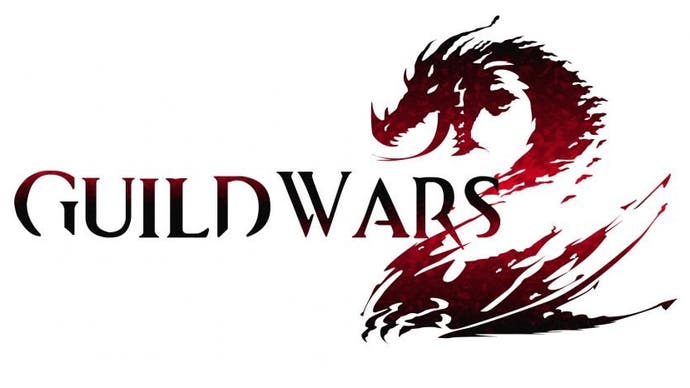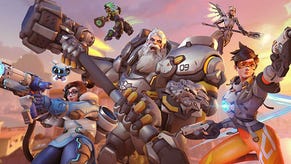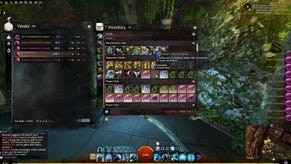In the wake of the ArenaNet firings, women game devs are experiencing a new wave of online harassment
The games industry can, and must, do more to support staff.
Last week, the firing of Jessica Price and Peter Fries from Guild Wars developer ArenaNet over comments made to a partnered Youtuber on Twitter shook the game development world. The firings came after significant online backlash against Price and Fries from Reddit users, and in the aftermath, many developers expressed fears the event would embolden fringe sections of game communities to feel they could demand the sacking of developers at will.
Unfortunately, but also unsurprisingly, it would seem these fears are now being realised.
Stories have emerged on Twitter of attempts by social media users to bring down developers, particularly outspoken women, merely for voicing their own opinions online. This new wave of harassment raises serious questions about how game companies support staff in dealing with online abuse, and the lack of structures in place to deal with problems arising from interactions between developers and game communities.
In the case of Dr. Hazel Monforton, a narrative designer for Dishonored developer Arkane Studios, the harassment occurred when she engaged in a debate with a Twitter user over the ArenaNet firings. In response, the user tweeted at Arkane Studios and threatened to end his custom with the company due to perceived 'abuse' he had received from Monforton (the original tweet has since been deleted).
A couple of days later, a petition appeared on Change.org which called for Arkane Studios to fire Monforton. The petition (also deleted) cited Monforton's response to the previous Twitter user's comments in the feature photo, and argued "insulting 'gamers' as a group on Twitter" was sufficient grounds for her to lose her job.
Another female game developer, Jennifer Scheurle, has also been subject of harassment after she recently tweeted about the lack of female CEOs in German game studios. One Twitter user who disagreed with Scheurle's opinions chose to message her company, Opaque Space, to demand she be disciplined for expressing "group/gender hating ideals, especially towards men". The message directly cited the firings at ArenaNet, and suggested Scheurle was "closely band[ed] with" Jessica Price.
When I contacted Scheurle to discuss her experiences, she told me she regularly receives online harassment due to her position as a "visible woman in games and [an] advocate for marginalised groups". Recently, however, she has noticed a change in behaviour towards her since the firings at ArenaNet.
"For the first time in probably six months I have seen a wave of harassment from people with alternative accounts and new accounts specifically created to harass people like me," Scheurle told Eurogamer. "That is usually a sign for an organised attack towards people engaging with a specific topic, especially women."
Understandably, Scheurle explained the events at ArenaNet and the recent message sent to Opaque Space had worried her. She noted that although Opaque had been extremely supportive, even writing an official statement to back her up, she feels some future employers could avoid hiring her on account of her outspoken online presence. Despite this, Scheurle feels she has little choice but to continue speaking out, and described the need to comment on the situation as "exhausting, but necessary".
From the experiences reported so far, the ArenaNet firings seem to be having real-life consequences for developers across the industry. Game Workers Unite, an organisation focused on video game industry workers' rights, has stated the firing of Price and Fries "carries echoes of Gamergate, and will only embolden harassers further".
"ArenaNet has signalled to the entire industry that our job security can be, and almost certainly will be, imperilled by the most vitriolic and volatile players."
Despite the damage that has already been done, game companies can still act to protect staff. According to Opaque's statement, the events at ArenaNet should trigger discussions about the appropriate methods for dealing with social media issues and online harassment. The approach taken by Opaque, which was to call out the bad behaviour and support Scheurle's right to voice political opinions, is one way for games companies to back their developers. But the International Game Developers Association has stated companies and individuals should also clarify the guidelines on social media use and mechanisms in place to protect staff, before an incident even occurs. By creating a transparent review process for online incidents, staff will feel reassured they will be given a fair hearing, and internet mobs will feel less able to demand the firing of developers on a whim.
The IGDA has also recommended that companies plan how they will protect their talent from "harassment mobs". In practice, this could look a little like developer Kitfox's new harassment policies, which were publicly shared by the studio. The policies outline how staff members can seek assistance if they experience online abuse, both internal and external, and mention staff members may take time off if they feel stressed as a result of online abuse.
While these measures will aid staff in handling social media problems, game companies need to be mindful they don't completely restrict what their staff can say online. Perhaps more than anything, the industry needs a cultural shift to recognise that developers should be allowed their own voice online, and indeed, should be encouraged to speak up on issues that matter to them.
"Our industry is political, our work is political. We are creators," Scheurle concluded. "It's impossible to expect us to not engage and comment on the environments we work in and I believe that companies need to acknowledge this."









